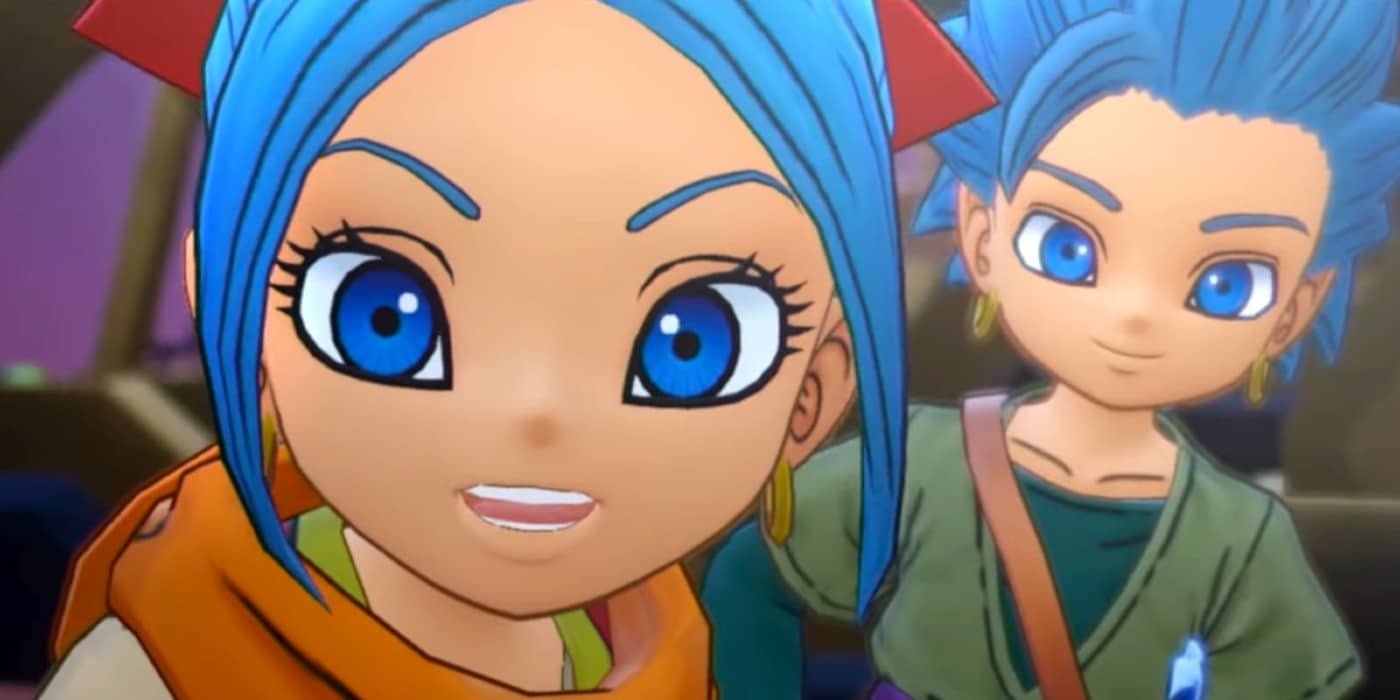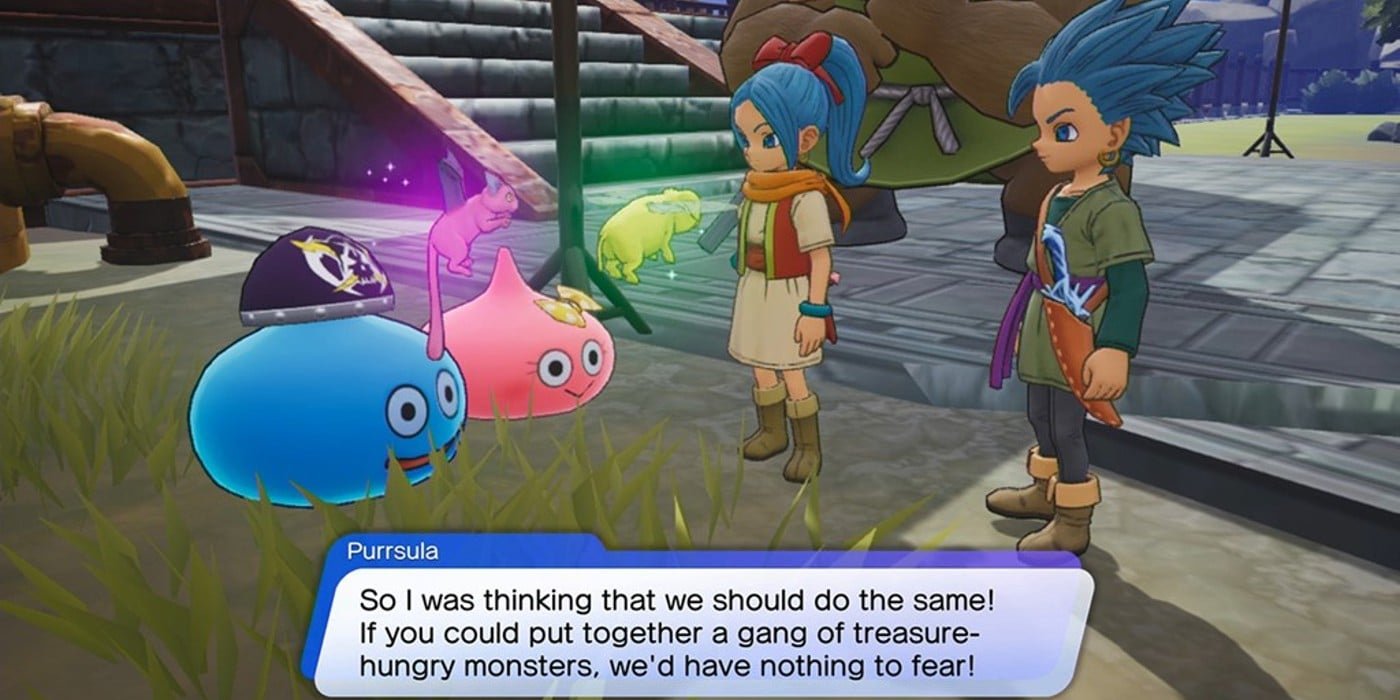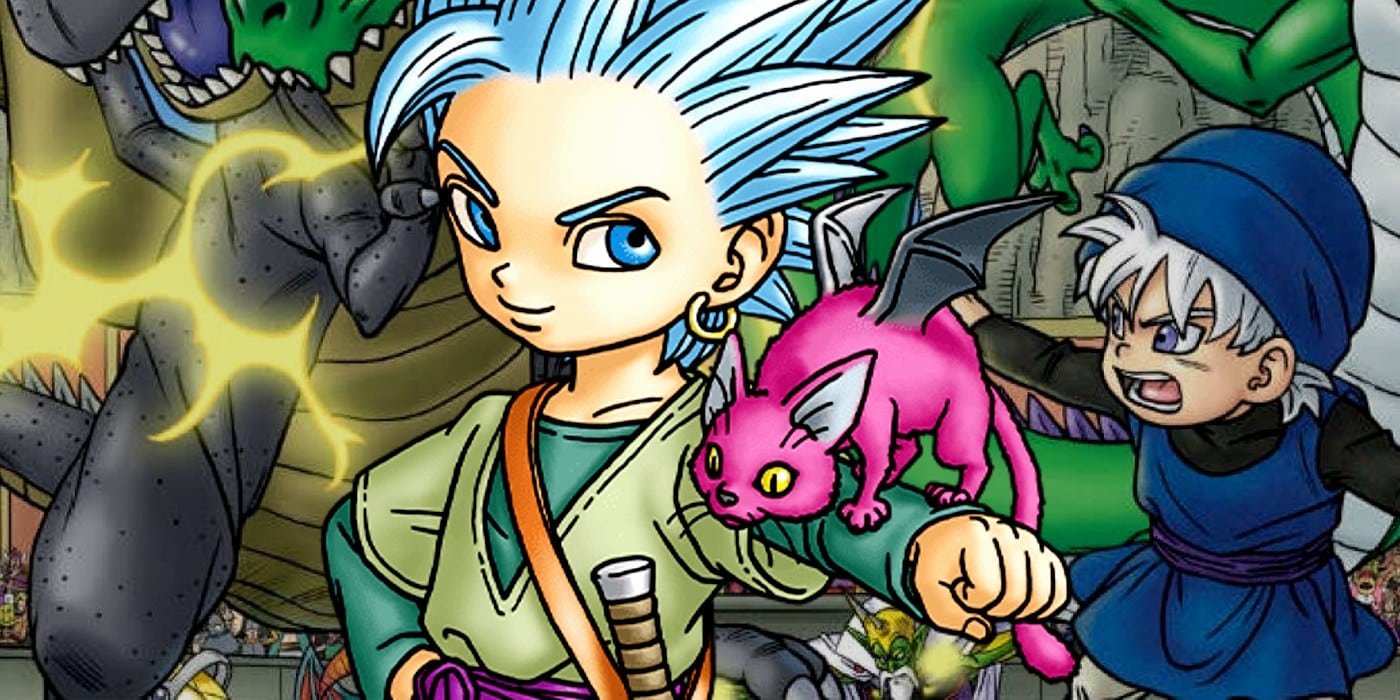Let me get this out of the way: Dragon Quest Treasures is a good game. I gave it a very high review over at Screen Rant, and I think it delivered exactly what it promised – a Monsters-lite spin-off where you get to run around as Erik and Mia as kids and find treasure. I wasn’t expecting an in-depth story that connected strongly to Dragon Quest 11. In other words, I wasn’t expecting a Red Dead Redemption 2-scale prequel and didn’t expect a game that would totally blow minds from a narrative standpoint.
I think quite a bit of the negativity hurled at DQ Treasures is from expectations lying outside of what the game really promoted or claimed to be. Is it a perfect game? No. But I do think it was a successful game in terms of doing what it promised. But that’s not really what this post is about – it’s about Dragon Quest prequels and sequels.
Dragon Quest is a bit unique in that most of its main series spin-offs are prequels rather than sequels. If we’re making that age-old comparison to Final Fantasy, this is especially true. For every Dragon Quest Monsters with Terry or Keifer as kids, there’s a Final Fantasy XII: Revenant Wings or Lightning Returns or Final Fantasy IV: The After Years. Final Fantasy has rarely gotten prequels, but it does happen – for instance, FF15 got what (and I’m using the scientific term here) a buttload of prequel content both pre- and post-launch.
I’m not saying one is necessarily better than the others, but there’s still something to be said about the way Dragon Quest entries have a sense of finality to them, and likely why prequels are more common than DQ sequels. When a Dragon Quest story is done, it’s done.
There are exceptions to the rule, of course (the Torneko games, for example) but generally, Dragon Quest’s main series spin-offs follow a pattern of “character from the mainline game as a kid, usually in another world” – Young Yangus, DQ Monsters, and DQ Treasures all follow this. Even if this content focuses on an adult version – like the Erik one-shot manga – it’s typically a prequel.
Mostly, a prequel is set in another world so that it doesn’t risk messing up the “canon” of the mainline game. From a creative standpoint, this is also great because it allows the devs to make something that may not fit into the rules of the mainline game’s world.

Using a kid is also smart because it can allow for a simple explanation for “Why doesn’t the character mention this or remember it?” I mean, how much do you really remember from your own childhood? So this can easily be explained away by saying “Oh, they forgot about it the same way you forgot about most of the kids you went to second grade with.”
So, while these are technically prequels, they’re best looked at as a standalone game. Yes, Dragon Quest Treasures has Erik and Mia in it, but it’s really its own thing. You can play it without ever touching DQ11 and if you skip DQ Treasures completely, you’re not missing highly important info from DQ11’s story. Play one or the other, play ‘em both. You do you.

Personally, I like this prequel approach better than inflating a story (artificially or otherwise) with sequels. I like knowing that when I boot up a mainline Dragon Quest game, I’m getting the whole thing. There are no DLCs or expansions to worry about (unless you’re counting DQ10, an MMO, or DQ9’s maps). I can see the story from beginning to end. In an age of battle passes, season passes, premium DLC, and microtransactions this shouldn’t go underappreciated.
So, for whatever issues you might have with Dragon Quest Treasures, I personally find this a better option than story DLC spread out across 3+ years after launch. And I’m looking forward to seeing what a potential Dragon Quest Treasures 2 will do next.

